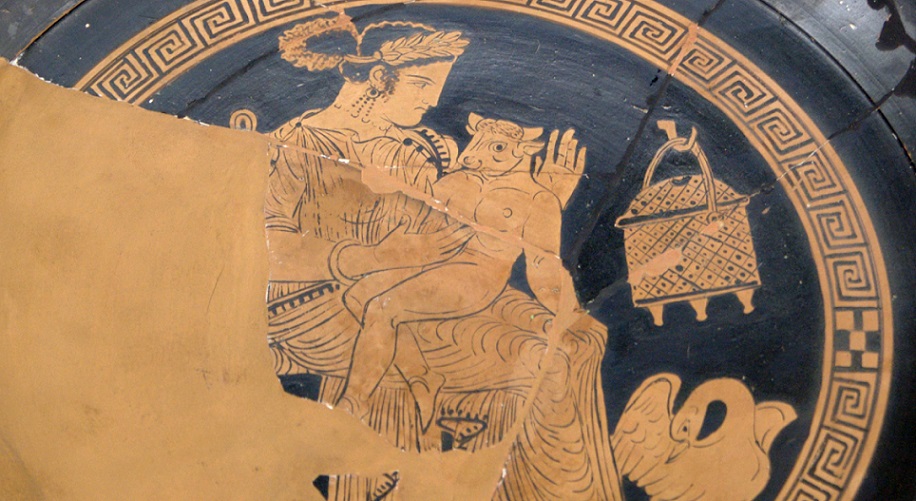Half man, half monster—I am in a maze.
They banished me because of others’ sins.
Among these walls, I’m doomed to spend my days.
No happy ending. No one ever wins.
It was the king, deceitfully, who lied—
and thus, led to my mother’s carnal lust.
Then born with horns and hooves, I had to hide.
A bastard beast whose treatment was unjust.
The princess then betrayed the queen and king
when Theseus came knocking at her door.
For cleverly, she offered him a string.
He swore his love but left her at the shore.
They failed to change the sails from black to white.
His father killed himself upon their sight.
For the background of the Minotaur
see the story of Theseus in Bulfinch’s Mythology.
Alan Sugar shares his poetry and performance art in Decatur, Georgia where he currently resides. He is also a puppeteer, and he has worked as a special education teacher in the public schools of Atlanta. Currently, Alan works as a writing tutor at Georgia State University Perimeter College, Clarkston Campus. His work has appeared in the Atlanta Review, The Lyric, and The Jewish Literary Journal.















Strrong iambic pentameter rhythm. Very interesting concept to write from the perspective of the Minotaur. I felt that you could develop this concept even more by writing more stanzas revealing more of the Minotaur’s feelings as a shunned beast, who to survive eats the flesh of humans thrown to him in the lanyrinth.
In the last couplet, I would think that the pronoun “he” fits better than “they” to underscore the fact that it was Theseus himself who forgot to change the sails, despite his father’s request. “He failed to change the sails. . .”
The fact that the last actions described here took place after the Minotaur’s death raises a perplexing question. How could the Minotaur be narrating in the first person actions that followed his death?
Interesting and clever take on a legend from the “monster’s” point of view.